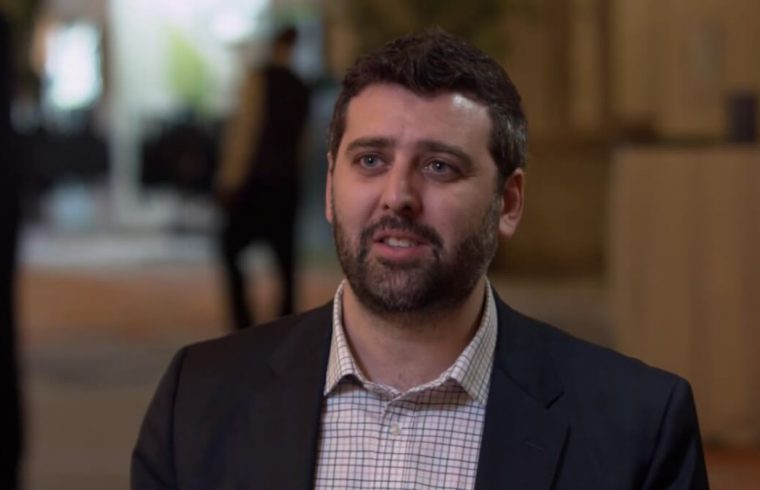“For the past 40 years, CQG has built sophisticated, intuitive tools for customers to better visualize and analyze market data to make smarter trading decisions. We view our new ML offering as the next breakthrough for mission-critical trading tools delivered by CQG.”
CQG has announced the launch of an artificial intelligence (AI) and machine learning (ML) trading toolkit aimed at predicting futures market movements.
Announced during the FIA Boca conference on March 11, 2024, in Denver and Boca Raton, FL, the new trading toolkit combines CQG’s extensive experience in analytics, mathematics, and market intelligence.
80% accuracy in predicting the direction of the E-mini S&P 500
CQG deployed the toolkit in a live trading environment after rigorous training and testing using historical data and obtained astonishing results: an 80% accuracy in predicting the direction of the E-mini S&P 500 futures contract.
This level of predictive success in a live setting confirms the toolkit’s effectiveness, echoing the positive results achieved during back-testing phases. The development process tackled numerous challenges, including data storage and curation, integration of ML infrastructure with financial industry standards, and the optimization of the ML training pipeline for generative time series prediction. This effort culminated in a robust model capable of making rapid, accurate predictions, providing CQG’s clients with a powerful new tool for market analysis and decision-making.
Clients can utilize encrypted files and cloud computing resources to create customized models, leveraging CQG’s technology for charting and trading. With a 40-year history of delivering sophisticated trading tools, CQG views this new ML offering as a natural extension of its mission to provide traders with the resources needed to make informed, strategic decisions in the market.
Ryan Moroney, Chief Executive Officer at CQG, said: “In early 2023, we decided we wanted to do something different in machine learning and AI that leveraged our unique position in the market, building off our comprehensive database of historical trade data and analytics in a way that could help our clients and prospects analyze, predict and trade markets through a new lens. We built a lab, and Kevin Darby – our Vice President of Execution Technologies – has done an extraordinary job of turning that effort into an exciting reality with results that have significantly surpassed our expectations.
“What we’ve built is portable. We can give a firm a set of encrypted files, and they can see how our technology predicts moves in liquid futures contracts with a high rate of accuracy. They will be able to use our ML lab, apply cloud computing resources and create their own models, either leveraging our models as foundational or making their own from scratch using our historical data and ML toolkit. They can then use CQG for charting and trading with those models. We have extremely smart, creative clients. This is a truly innovative breakthrough, and we’re looking forward to collaborating with them on the potential uses we haven’t even considered yet,” Moroney continued.
“For the past 40 years, CQG has built sophisticated, intuitive tools for customers to better visualize and analyze market data to make smarter trading decisions. We view our new ML offering as the next breakthrough for mission-critical trading tools delivered by CQG.”
Kevin Darby, Vice President of Execution Technologies at CQG, added: “We first had to solve multiple real-world challenges, such as storing and curating terabytes of historical market data while retaining the ability to make decisions in microseconds in real-time environments. We built bridges between the current ML infrastructure, based on the Python language, and the reliance of the financial industry infrastructure on C++. We also needed to recast the traditional ML training pipeline to optimize for generative time series prediction to estimate conditional probability distributions in a mathematically satisfying and stable way.”
FinanceFeeds spoke with CQG about algos
CQG’s play in the algo space is not new. Since acquiring software from Blue Trading Systems (BTS), the firm launched CQG Algos, a suite of execution technologies that includes pre-assembled trading algos and a software development kit. The algos run server side, accessible through a CQG GUI or API. This is Kevin Darby’s department, the Quant leader who joined CQG in 2020.
At last year’s FIA Boca, Kevin Darby explained how the algo execution platform performed. Better than a market order with larger order sizes, and “70% of the time we got orders done within the bid-offer spread”, he said. In today’s market, trying to execute large orders is not easy without incurring slippage. CQG Algos have been successful in onboarding clients that need to execute large orders with minimal slippage.
All the tools are generally made to help people make better decisions and avoid getting hurt on the risk side, but CQG Algos is the firm’s first offering that has a very direct correlation to the amount of money clients save.
“Transaction cost savings for the customer is real tangible money that goes straight to their bottomline. We believe our tools help customers make more money or not lose money. This is the first time that direct correlation says ‘if you use this, on average, these are the savings you’re going to see,” said Moroney.
Yes to AI but not unleashing something unintended
When questioned about the integration of AI products, both CQG executives were cautious, especially in the name of data privacy, although the “magic behind” ChatGPT and lesser-known language models, such as Meta’s LLaMA AI, is “super cool”. The process, however, is very expensive and time-consuming, according to Kevin Darby, who says CQG is exploring various ways that AI can help its clients at a measured pace – with an eye toward privacy, including how to apply AI to optimize algo execution, on algos like Arrival Price or VWAP. For CQG, he said, this approach is a lot less scary than unleashing some horrible chimera black box algo on our clients. “We’re definitely not doing that. We’re actively working on training algos with AI, in a careful and measured way.”












